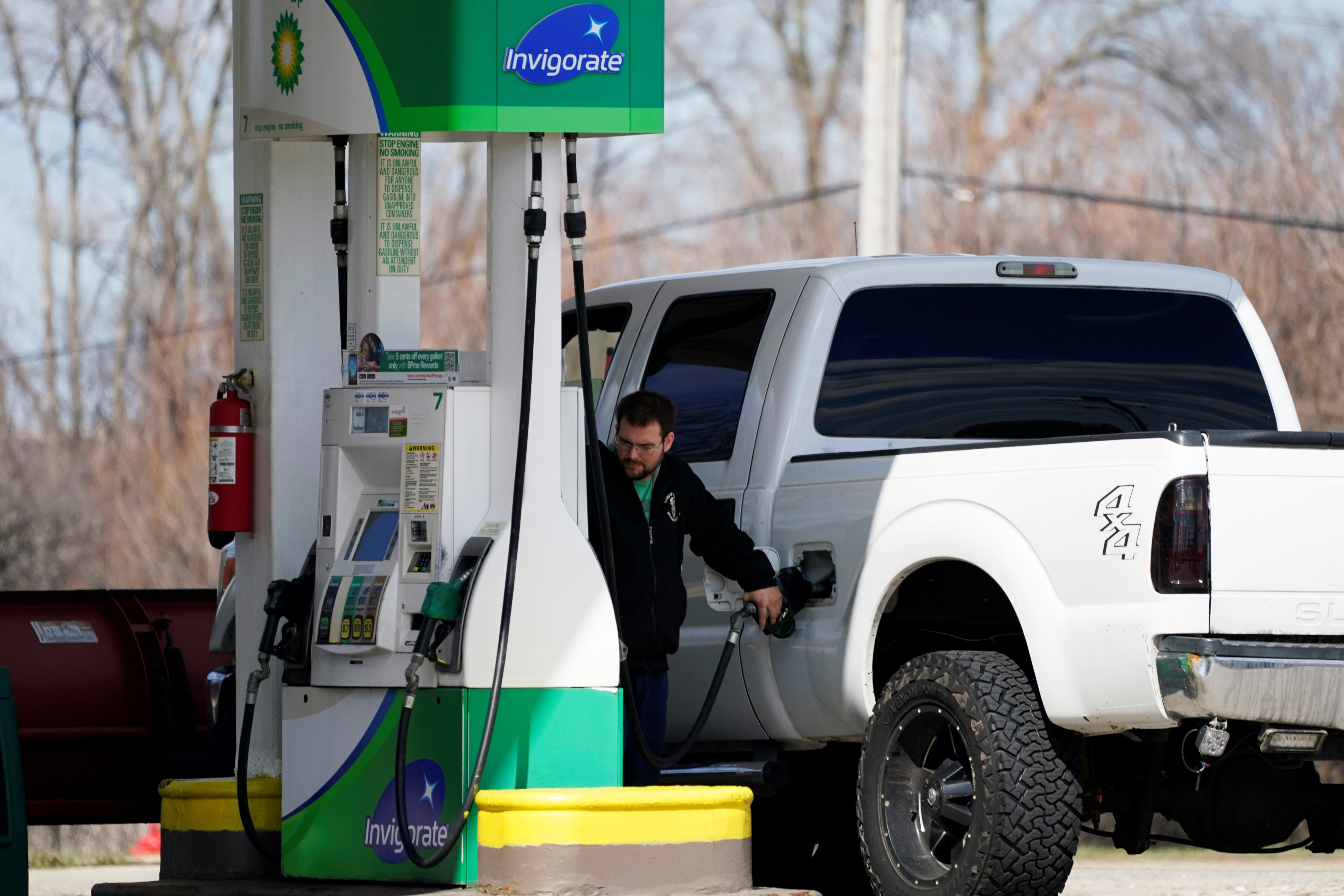Biden sells more oil reserve after OPEC+ cut, US crude at $80 lows
The Biden administration's aggressive moves led the SPR inventories to fall to their lowest since 1984, bringing pump prices of gasoline down before the election.
-

A man fills up his gas tank as he checks gas price at a gas station in Rolling Meadows, Ill., US, Friday, April 1, 2022 (AP Photo/Nam Y. Huh)
US crude hit its lower end of $80 per barrel Tuesday while reports reveal that the US President's administration worked on selling more of the nation’s emergency oil reserve to address the output cuts that producer alliance OPEC+ announced, which could jeopardize Biden and his party in elections next month.
In October, West Texas Intermediate (WTI), the benchmark for US crude, surged to $93.64 per barrel after the decrease of production by 2 million barrels per day from November onwards announced by OPEC on October 5.
Prior to that, WTI crude futures also fell 0.6 percent to $73.19 a barrel. The OPEC+-driven rally of the past couple of weeks had started pushing up pump prices of US fuel, which was not a news President Joe Biden and Democrats would want to hear ahead of the November 8 mid-term elections.
The Biden administration plans to sell another 26 million barrels from the Strategic Petroleum Reserve (SPR) for the fiscal year 2023, Reuters and Bloomberg reported citing sources. Before, the administration has another 15 million barrels to clear from SPR under a campaign to sell 180 million barrels over 6 months.
Read more: White House to release another 15mln barrels of oil from SPR
The administration's aggressive moves led the SPR inventories to fall to their lowest since 1984, bringing pump prices of gasoline down before the election. The average pump price was on Tuesday at $3.87 per gallon versus $3.92 the week before. It was at a record high of $5 in mid-June.
The Republican party's criticism of Biden has accused him of highly risking the nation’s emergency oil reserve for the benefit of attempting to hold on to the Democrats’ control of the US Congress and Senate.
According to Republicans, the reserve is meant for mitigating pure oil shortages in the domestic market and not for decreasing energy prices. However, Biden saw that Americans' welfare was a bigger priority, as they struggle with the worst inflation in decades due to high energy prices.

 2 Min Read
2 Min Read










